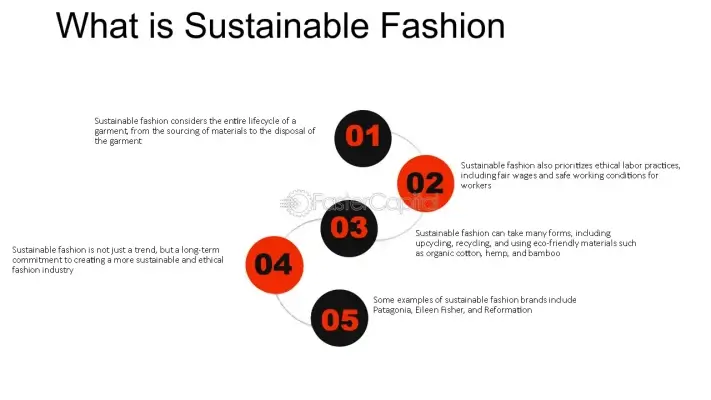Is Your 'Sustainable' Lingerie Actually Greenwashing? 3 Red Flags to Look For in a Supplier?
Your customers demand sustainable products, and your brand is ready to deliver. But as you source eco-friendly materials, a nagging doubt appears: is your supplier's "green" promise real, or just clever marketing?
To determine if your supplier is greenwashing, first verify their certifications (like GRS or OCS) via the official database, request transaction certificates (TCs) for your specific material batches, and watch for vague, non-specific claims about their eco-friendly practices. A transparent partner will always provide verifiable proof.

The demand for sustainable fashion isn't just a trend; it's a powerful shift in consumer values. Building your brand on a truly sustainable platform creates incredible loyalty and trust. However, the risk of partnering with a "greenwashing" supplier is immense—it can destroy your brand's reputation overnight. This guide will walk you through the warning signs and empower you to build a genuinely sustainable supply chain with confidence.
Red Flag #1: Are Their Certifications Just Empty Words?
Your potential supplier's website is covered in eco-friendly logos like GRS, OCS, and OEKO-TEX®. It looks impressive. But when you ask for proof, they get defensive or send you an expired certificate.
A legitimate sustainable manufacturer will eagerly provide their valid certification scope and number. You can independently verify these credentials on the official databases of organizations like the Textile Exchange (for GRS/OCS) or OEKO-TEX®. Vague claims without verifiable proof are a major red flag.

I remember talking with a brand founder who was devastated. He had launched a whole marketing campaign around his new GRS-certified recycled polyester line. A customer questioned the authenticity, and when he pressed his supplier, they admitted their certificate had expired months ago. He had to pull the entire collection. This is why due diligence is non-negotiable. At HAVING (China) Ltd., we list our certifications proudly because we’ve done the hard work to earn them. We believe transparency is the foundation of a sustainable partnership. Don't just take a supplier's word for it; ask for the details and check them yourself. It's your brand's reputation on the line.
Decoding the Alphabet Soup of Sustainability
These logos aren't interchangeable. Each one tells a different part of the sustainability story. Understanding them helps you ask smarter questions.
| Certification | What It Verifies | Ask Your Supplier |
|---|---|---|
| **GRS (Global Recycled Standard)** | Verifies a high percentage (min. 50%) of recycled content AND tracks it through the entire supply chain. Also includes strict social and environmental processing requirements. | "Can you provide the GRS Transaction Certificate (TC) for my specific fabric order?" |
| **OCS (Organic Content Standard)** | Verifies the presence and amount of organic material in a final product. It tracks the raw material from source to final product but does not cover social or environmental processing aspects. | "What percentage of organic cotton does this product contain, and is it OCS 100 or OCS Blended?" |
| **OEKO-TEX® STANDARD 100** | Tests the final product for a long list of harmful substances. It's about product safety and being "clean" for human use, not about whether the materials are recycled or organic. | "Is the entire garment, including zippers and thread, certified under your OEKO-TEX® label?" |
Red Flag #2: Can They Prove the Material in Your Product Is a Genuinely Eco-Friendly one?
So, the factory has a valid GRS certificate. That's a great start. But how do you know the specific batch of recycled polyester you ordered for your shapewear line actually is recycled?
A trustworthy, certified supplier must be able to provide a Transaction Certificate (TC) for each specific batch of sustainable material they sell. This document is like a birth certificate, tracing the material from the recycler all the way to your factory, proving its authenticity.
![]()
This is where many brands get tripped up. A factory might have a general GRS certification, which allows them to handle recycled materials. However, they might engage in a "bait and switch," using cheaper, non-recycled conventional polyester for your bulk order while still claiming it's GRS-certified. Without a TC specific to your purchase order, you have no way to prove the chain of custody. Think of it like buying a diamond; you don't just trust the store is reputable, you ask for the GIA certificate for your specific stone. The TC is your non-negotiable proof. If a supplier hesitates, makes excuses, or says it's "not necessary," that is a massive red flag. It's a sign they either don't have a robust tracking system or are actively trying to deceive you.
The Journey of a GRS-Certified Garment
A real sustainable product has a story you can trace. The TC is the passport on this journey.
- Step 1: Collection & Processing: Post-consumer waste, like plastic bottles, is collected, cleaned, and shredded into flakes.
- Step 2: Yarn Spinning: The flakes are melted and extruded into recycled polyester yarn (rPET). The yarn spinner issues a TC to the fabric mill.
- Step 3: Fabric Milling: The fabric mill knits or weaves the yarn into fabric. They receive the yarn spinner's TC and, after production, issue their own TC to the garment factory (like us).
- Step 4: Garment Manufacturing: We receive the certified fabric, along with its TC, and manufacture your garments. We then provide you with all the documentation, completing the chain of custody.
This transparent, verifiable journey is the only way to be certain you're getting what you paid for. It's a core part of our commitment to clients who trust us with their sustainable collections.
Red Flag #3: Are Their Sustainability Claims Vague and Unspecific?
You ask a potential supplier about their sustainability practices. They respond with generic phrases like "we are an eco-friendly factory," "we believe in protecting the planet," or "we use green materials."
Genuine sustainability is backed by specific data and concrete actions, not just feel-good statements. A truly committed partner will talk about their specific water reduction targets, their certified waste management programs, or their investment in energy-saving machinery. Vague marketing fluff often hides a lack of real substance.
![]()
When I visit other factories, I can often tell their level of commitment within minutes. A factory that is truly sustainable has this ethos built into its operations. You'll see clearly marked recycling bins for fabric scraps, water-saving fixtures in the bathrooms, and data dashboards tracking energy consumption. On the other hand, a greenwashing factory might have a "Go Green" poster in the lobby but shows no real evidence of sustainable practices on the factory floor. Our philosophy, "body-before-fabric," extends to our environment. We believe a high-quality product can't be made in a low-quality, irresponsible environment. That's why we focus on measurable actions, not just empty words, as part of our OEM/ODM services.
From Vague Claims to Verifiable Actions
Challenge your suppliers to move beyond platitudes. Here’s how to tell the difference between a real claim and a greenwashing one.
| Greenwashing Claim (Vague) | Genuine Commitment (Specific & Verifiable) |
|---|---|
| "We save water." | "We've installed a water recycling system for our dyeing process, reducing our water consumption by 20% year-over-year. Here's our latest utility report." |
| "We manage our waste." | "We have a certified Zero Waste to Landfill program. All our fabric scraps are sorted and sent to a GRS-certified recycler. We can provide documentation." |
| "We care about our workers." | "We are audited annually under the BSCI (Business Social Compliance Initiative) framework. Our latest audit score is available for review by our partners." |
Conclusion
Avoiding greenwashing is about demanding proof. By verifying certifications, requiring transaction certificates, and questioning vague claims, you can build a truly sustainable brand that your customers will love and trust.
Frequently Asked Questions (FAQ)
1. Is OEKO-TEX® the same as organic?
No. OEKO-TEX® STANDARD 100 certifies that a product is free from a list of harmful substances, making it safe for human skin. It does not mean the material is organic or recycled. A product can be made from conventional polyester and still be OEKO-TEX® certified.
2. What is a Transaction Certificate (TC) and why is it important?
A Transaction Certificate (TC) is a crucial document in the sustainable supply chain. It is issued by a certification body and acts as proof that a specific batch of products (e.g., a shipment of fabric) conforms to a given standard like GRS or OCS. It's the only way to prove the authenticity of the sustainable materials in your specific order.
3. Can a factory be GRS certified if they don't produce recycled yarn themselves?
Yes. In fact, this is very common. A garment factory can be GRS certified if it implements the required traceability systems to handle and segregate certified materials, meets the GRS social and environmental criteria, and sources its fabric from a GRS-certified fabric mill.
4. How can I check if a supplier's GRS or OCS certificate is valid?
You can use the Textile Exchange's public database. Ask the supplier for their certification number or company name, and you can look them up to see if their certification is active and what product categories it covers.
